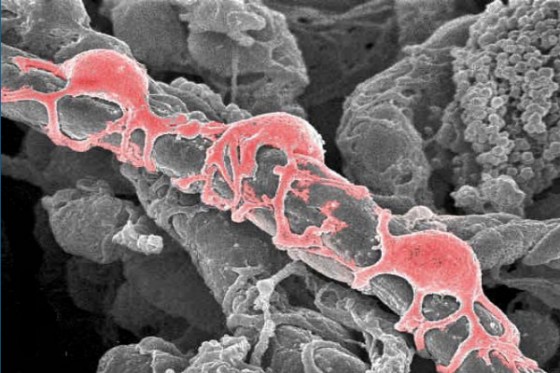

Finally, mesenchymal stem cells seem to be not only hypoimmunogenic and thus be suitable for allogeneic transplantation, but they are also able to produce immunosuppression upon transplantation. Cyclic strain enhances matrix mineralization by adult human mesenchymal stem cells via the extracellular signal-regulated kinase (ERK1/2) signaling pathway. Furthermore, given the ease of their isolation and their extensive expansion rate and differentiation potential, mesenchymal stem cells are among the first stem cell types that have a great potential to be introduced in the clinic. Because MSC were found to have the ability to differentiate into cells of multiple organs and systems such as bone, fat, cartilage, muscle, neurons, hepatocytes and insulin-producing cells, MSCs have generated a great deal of interest for their potential use in regenerative medicine and tissue engineering. Many adult tissues contain a population of stem cells that have the ability to regenerate after trauma, disease or aging. Mesenchymal stem cells (MSCs) have been isolated not only from bone marrow, but also from many other tissues such as adipose tissue, skeletal muscle, liver, brain and pancreas.


 0 kommentar(er)
0 kommentar(er)
